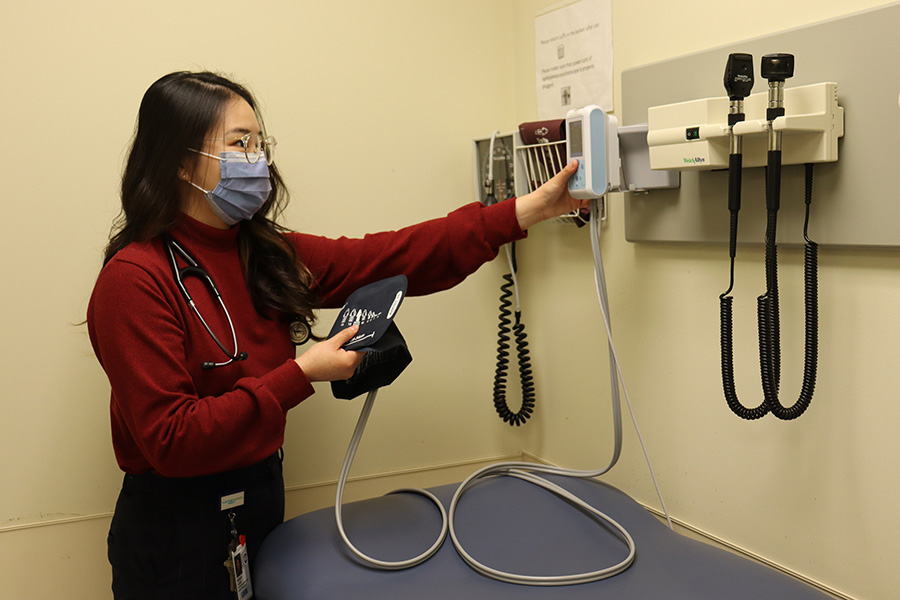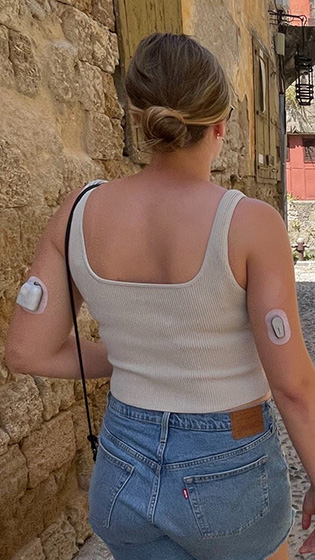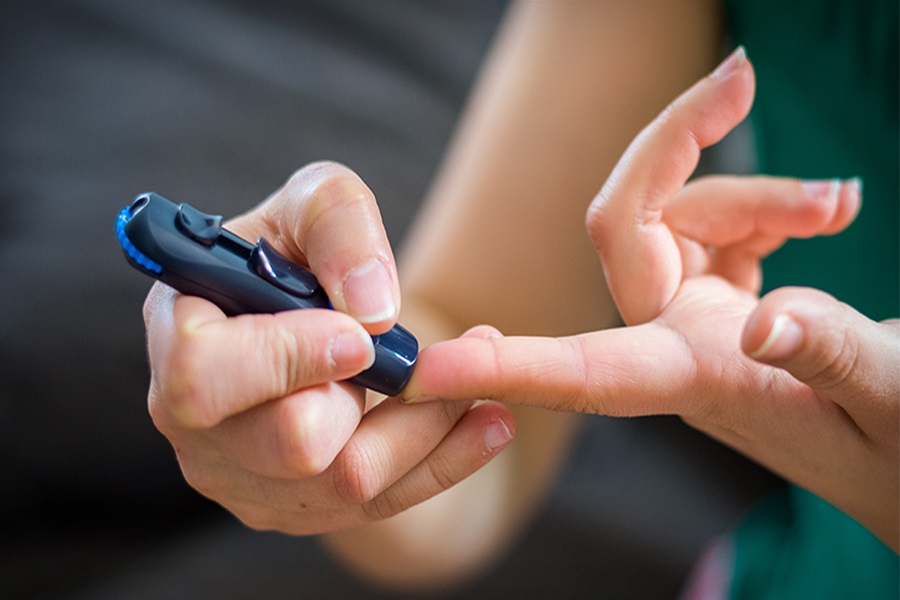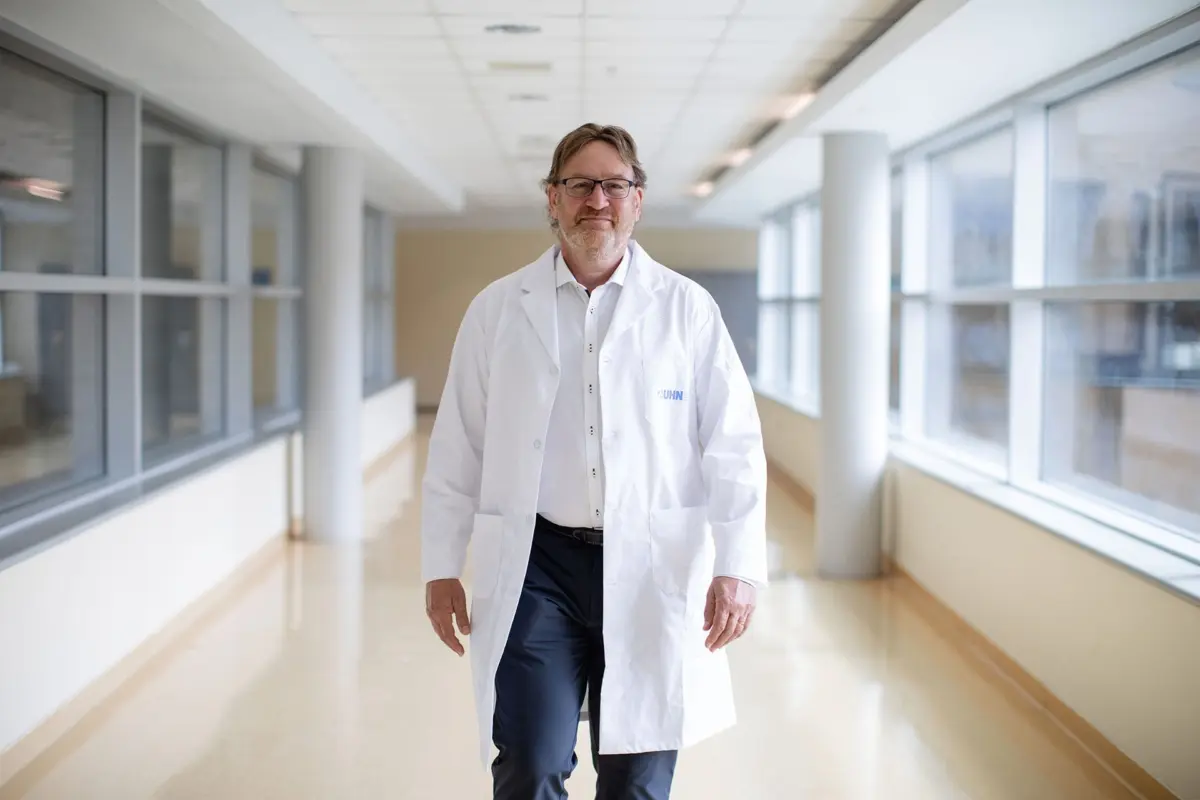Five years after her diagnosis – and its accompanying worry that diabetes would impact her ability to travel – Michelle Jones went to Greece confident in her diabetes management. (Photo: Courtesy Michelle Jones)
When Michelle Jones was diagnosed with type 1 diabetes, the spontaneity of day-to-day life shifted overnight.
A day-long activity suddenly included bringing insulin, sugar, and a backup blood glucose monitor and pump supplies.
Attending an exercise class sometimes meant pausing to take sips of orange juice.
Brain fog from high blood sugar could force her to take a break from graduate school work.
When the opportunity to vacation on another continent arose – mere months after her diagnosis – Michelle worried that she wouldn’t be able to go.
But just as they had throughout her entire journey with diabetes, the team at the Sun Life Financial Banting and Best Clinic at Toronto General Hospital (TGH) provided her with the tools to succeed.
“My nurse at the time immediately said, ‘yes, let’s figure out how to get you there,'” says Michelle, who was 23 when she was diagnosed.
The notion that those living with diabetes can do anything they want in life is something that the team at the clinic has strived to instill in their patients.
To recognize this year’s theme for this year’s World Diabetes Day on November 14, “Access to Diabetes Education,” University Health Network (UHN) is highlighting the exceptional care the clinic provides to its patients. The Banting and Best Clinic works with patients with type 1 and type 2 diabetes, including those with cancer and those who have recently undergone transplant.
Education in diabetes care allows those with diabetes to learn what management styles work best for them and their needs.
“The diabetes educators have been such a non-judgmental support as I learned this new part of my life,” adds Michelle.

Type 1 diabetes management is a ‘partnership’
Learning that you have diabetes at any age is life-altering, but can feel especially jarring as an adult who already has their ways of going about life, says Dr. Phillip Segal, Medical Director at the clinic and an endocrinologist at TGH.
“A diabetes diagnosis can feel like a crash landing,” he says. “To help mitigate this, our clinic is home to practitioners who constantly up their game to provide care to every patient.”
When Michelle was eventually diagnosed with type 1 diabetes at a walk-in clinic, she was sent home with a prescription for insulin and needle tips.
“Nobody seemed to take the diagnosis very seriously until I ended up at the clinic,” she says, comparing the experience at the walk-in clinic to getting a prescription for antibiotics to treat strep throat.
Walking into the clinic at UHN was like night and day.
In the weeks after, Michelle visited the clinic several times a week to work with Dr. Segal and other educators to explain the ins and outs of her diagnosis and teach her what it meant for her.

A dietician even cut up an apple with her, walking her through how many carbs it contained and how they would affect her.
“It was an overwhelming experience, but there was a real sense of group care,” she says. “It felt like they were teaching me what I needed to know to live a fulfilled life.”
Expanding the scope of care
At its most successful, diabetes care is tailored to a person’s lifestyle – their job, their hobbies, their home situation, what types of food they eat.
“Diabetes is so intertwined with how people live their everyday lives,” says Mandy Yuen, a physician assistant at the clinic.
Mandy, who was recently brought on to the team to aid with high patient volumes, is the only physician assistant in the Division of Endocrinology at UHN.
She describes her role as a “physician extender,” meaning she works together with a supervising physician to perform assessments and initiate treatments under medical directives. One of the most meaningful parts of her job is that she is able to dedicate more time during appointments to learn about her patients and their story.
“Having conversations with patients – whether in an inpatient setting or at the clinic – means we can work together to find long-term solutions to implement in their daily life,” she says, emphasizing the value of sustainable strategies that work best for the individual.
The partnership between patient and educator is grounded in a shared goal of learning what will allow a person with diabetes to live their best, healthiest life.
“The team at the clinic have empowered me and taught me to live my life safely,” Michelle says.
While she isn’t currently a patient at the clinic – she’s pregnant and is working with a team at Mt. Sinai Hospital that specializes in diabetes management in pregnancy – she credits the education and support for where she is in her journey with diabetes today.
“You can sometimes get burnt out and exhausted from managing diabetes,” she says. “It feels good to know that the clinic is always a safe space to share those struggles and receive that extra support.”


